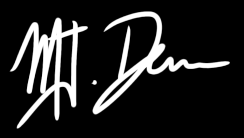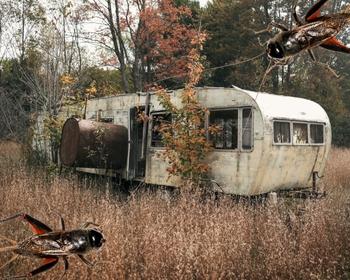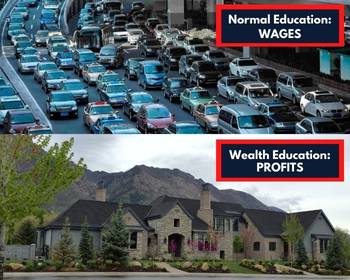Sell Slowlane. Get Rich Fastlane.
How to learn every personal finance book ever written in less than 3 minutes.
And more importantly: What you should be doing instead.
Sell Slowlane. Get Rich Fastlane.
And more importantly: What you should be doing instead.
If you're on a learning quest about wealth, money, and early retirement, the following few paragraphs will save you thousands of hours and, minimally, thousands of dollars. For some—maybe you—it might be worth millions.
Hit your favorite bookstore and search in the Personal Finance section. Therein, you will find tens of thousands of books on getting rich, investment strategy, and the growingly popular "early retirement" movement, better known as FIRE. Regardless of the author you pick—and you can choose any of them—you'll read about the same stale strategies from the same stale dogma. Nearly every personal finance book propagandized by the media is simply a different flavor of the same regurgitated orthodoxy. And that orthodoxy is called the The Slowlane.
The Slowlane is the serendipitous idea that you can get rich with a paycheck, a frugal lifestyle, and a regular religious investment in an index fund. Or if you're super fanatic, you can retire early in your 1974 RV where your idea of a fun Friday night is a game of charades and a stiff glass of water.
For instance, David says to stop drinking Starbucks because all that coffee will be worth thousands of dollars decades later, you know, by the time you're too old to stomach coffee.
Suze says you can't afford that new pair of shoes, the new car, or the new TV. Accept that your life sucks while I sit here on TV and make millions.
Ramsey says to save an emergency fund, cancel your credit cards and regard debt as evil. Gee, I wonder if Ramsey took any debt when he purchased his stately 15,000-square-foot mansion?
Morgan wants to lower your expectations and convince you that mediocrity is OK. Oh, and don't forget to invest in that index fund. Wow, how novel!
In the monster of all books, Robbins says to use diversified asset allocation and minimize expenses. Funny, is this how Robbins amassed a net worth of more than half a billion dollars? Or would that have to do something with high-dollar motivational seminars?
Then there's Stanley who says the millionaire next door drives a used car.
Heck, in one cringeworthy article, one Slowlaner even admitted to saving money by exploiting a local charity for discounted food, even though this man earned more than $100,000. More cringe: Another Slowlane guru says to stop buying your wife birthday presents, give up on your consumer-driven passions (like cars and dining out) and instead suck it up... you're going to be rich!
Does this sound like financial freedom to you?
Or financial enslavement?
If lowering your standards is part of some guru's financial plan, you need a new financial plan. And a new guru.
The Slowlane financial strategy is less about financial freedom and more about economic chastity. It's about surrendering. Yes, give up the notion that you can win real financial freedom and instead adopt an impoverished life for the sake of saving and investing. If lowering your expectations and standards is part of some guru's financial plan, you need a new financial plan. And a new guru.
Adopt the Slowlane, and you can FORGET IT.
Worse, success changes nothing.
Successful Slowlaner millionaires still live like they're in poverty—your best-case scenario is a lower-middle-class existence. A "millionaire" is just an empty chest-pounding title, not an abundant reality. Those who "retire early" into this suckfest only have one hope of escaping—to sell this scheme to millions of others, hence escaping from the paradigm they push.
Here's how you can save 1000s of precious hours of your time.
If you read one Slowlane book, guess what?
You read them all.
And you just saved yourself thousands of hours of reading. Yes, no matter what color M&M you eat, it all tastes the same.
Wealthy millionaires earn their wealth asymmetrically on offense fastly through business. Impoverished millionaires earn their wealth linearly on defense and slowly through time. One makes you rich, the other less poor.
Here's how to spot Slowlane dogma and expose if you're being brainwashed into a lifelong subscription to mediocrity.
If you encounter these platitudes in any text about wealth, book, article, etc., STOP. You're getting indoctrinated into Slowlane orthodoxy.
These strategies don't create wealth; they simply keep you LESS POOR.
Re-read that again. The Slowlane is about keeping your LESS POOR in terms of money, but not in memorable life experiences. Let me be clear: The above strategies aren't without merit; they're just ineffective for building wealth.
The only people who are getting rich in the Slowlane are the people who sell it.
Why?
Because they have access to asymmetrical outcomes, outcomes that only arise with a Fastlane strategy. Fastlane strategy is offensive where incomes and asset values explode. An asymmetrical outcome is writing a book about Slowlane strategy and getting rich because you sold 5,000,000 copies. An asymmetrical outcome is starting a business with $5000 and turning it into a $50M company within five years. An asymmetrical outcome is creating a product or service that millions buy.
The Slowlane financial strategy is about keeping your LESS POOR strictly in terms of money, but not memorable life experiences. These strategies aren't without merit; they're just ineffective for building wealth.
Wealthy millionaires earn their wealth asymmetrically on offense fastly through business. Impoverished millionaires earn their wealth linearly on defense and slowly through time. One makes you rich, the other less poor.
While choosing "less poor" is better than most people, choose better.
Choose not to lower your standards to that of a broke coed—choose wealth.
My best wishes for your success and happiness,

MJ DeMarco, Entrepreneur and Author of The Millionaire Fastlane
Try for Free Get the BookSome books can change how you think. Others can change how you live. Never underestimate what you can achieve in a few short years when you apply the right business methods & allow asymmetrical returns to work their magic.

FIRE Success Satired!
"I didn't want to work for the rest of my life," said Peter Furling, "so I stopped spending money. Then I heard the crickets outside and realized, 'Hey, I could live off the land eating high-protein insects and save hundreds every month!'"

Move the Needle!
If you're struggling financially, blame your your teachers, your parents, and the media. You're making bad choices based on bad information—here's how to make better financial decisions to create a better financial outcome... WEALTH.